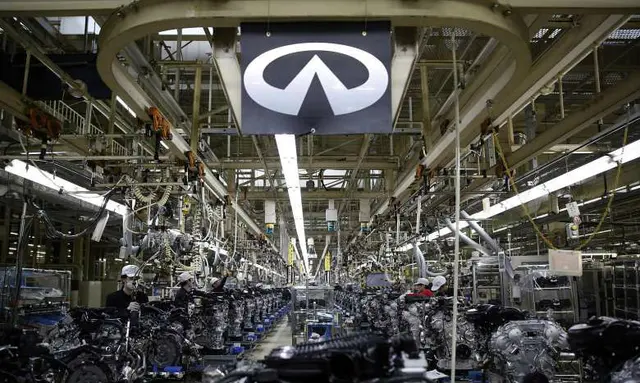Nissan Motor confirmed on Thursday (May 12) that it was in capital tie-up talks with scandal-hit Mitsubishi Motors, as local media reported that the deal would be an effective acquisition.
Nikkei Asian Review said Nissan, Japan's second-largest automaker by sales, plans to spend roughly 200 billion yen (S$2.52 billion) to buy a 34 per cent interest in much smaller Mitsubishi Motors, hoping to help the embattled carmaker turn itself around in the wake of a fuel-economy scandal.
"Nissan and Mitsubishi are discussing various matters including capital cooperation, but nothing has been decided," Nissan said in a brief statement. "We plan to discuss this matter and others at a regularly scheduled board of directors meeting today.".
In a separate statement, Mitsubishi also said it would discuss the issue at its board meeting later in the day.
The deal would amount to an effective acquisition by Nissan, making it the top shareholder ahead of Mitsubishi Heavy Industries, which holds a 20-per cent stake, according to several major local media, including national broadcaster NHK.
Mitsubishi is attempting to turn itself around after a bombshell admission last month that it has been cheating on fuel tests for years.
The scandal - reported to cover almost every model sold in Japan since 1991 - also includes mini-cars produced by Mitsubishi for Nissan as part of a joint venture.
It was Nissan that first uncovered the problems with Mitsubishi's fuel economy data, but Mitsubishi has said it had no part in the cheating.
Confirmation that discussions are under way comes just after Mitsubishi on Wednesday said it had enough cash to weather the fuel-economy scandal, and warned that non-compliant data may have been used to calculate the fuel economy for more of its cars than previously announced.
Mitsubishi admitted last month that it had supplied Nissan with mini-vehicles with overstated mileage levels.
Mitsubishi shares had not traded so far on Thursday due to a glut of buy orders. The automaker's market value has fallen around 42 per cent or US$3 billion since the scandal broke on April 20, on fears of hefty compensation costs, while sales of its mini-vehicles halved in April.
The automaker is part of the Mitsubishi business empire, or "zaibatsu", which was split up into independent companies after the Second World War. It has strong ties with its sister companies, including Mitsubishi Heavy Industries Ltd, Mitsubishi Corp, and the Bank of Tokyo-Mitsubishi UFJ, which together with subsidiaries hold roughly a 34 per cent stake in the automaker.
Mitsubishi has admitted to overstating the fuel economy of four of its mini-vehicle models for the Japanese market - the Dayz and Dayz Roox which are marketed under Nissan's badge, and two other models under the Mitsubishi brand. As a result, analysts estimate the automaker is facing up to US$1 billion in compensation payments to its customers for 'eco-car' taxes and extra fuel costs, along with payments to Nissan over the rigged readings. Mitsubishi halted production of the four models late last month.
Making cars for Nissan has been a driver for domestic sales at Mitsubishi, whose own branded vehicles have lost market share. Japan comprises roughly 10 per cent of Mitsubishi's global vehicle sales, while it is growing its presence in Asia.
Mitsubishi's latest misconduct has revived memories of a scandal more than 15 years ago when it admitted systematically covering up customer complaints for more than two decades. Its brand image weakened, it was unable to recover on its own and received a major bailout from other Mitsubishi Group companies in 2004, after which it continued to be plagued by recall and quality issues.
(THE STRAITS TIMES)
 简体中文
简体中文

